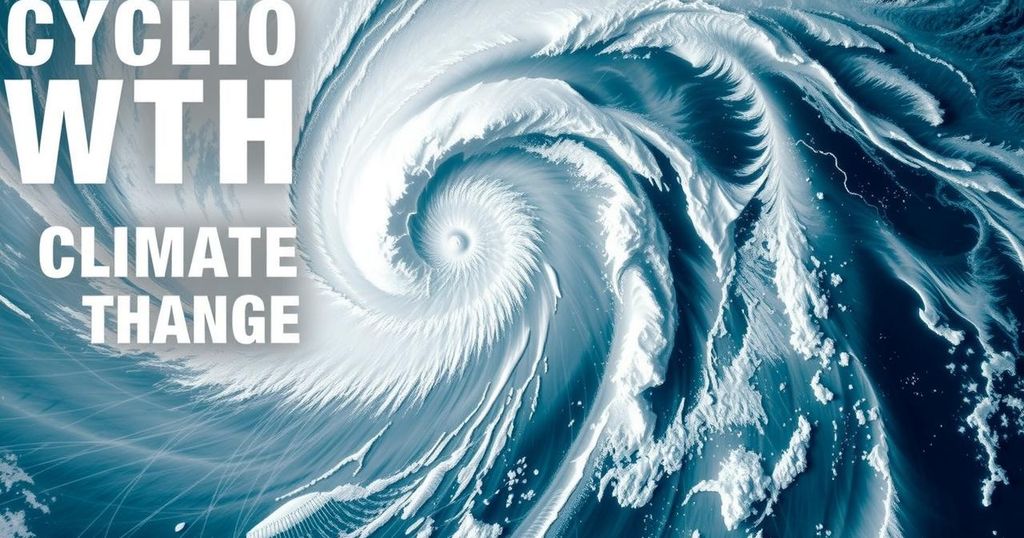Climate Change Intensifies Cyclone Chido, Study Reveals

Recent research indicates that Cyclone Chido was intensified by climate change, which has increased the likelihood of such severe storms by 40 percent compared to pre-industrial times. Chido, a Category Four cyclone, caused significant damage in Mayotte, raising concerns about the potential death toll as assessments continue. The findings emphasize the critical relationship between global warming and the intensity of tropical cyclones.
Recent research from Imperial College London indicates that Cyclone Chido, which affected the Indian Ocean island of Mayotte, was exacerbated by climate change. The study suggests that the likelihood of cyclones with Chido’s magnitude is 40 percent higher in the current warmer climate of 2024 when compared to pre-industrial times. Cyclone Chido, classified as a Category Four storm, caused unprecedented damage, flattening homes in one of France’s economically disadvantaged territories and resulting in fears of a significant death toll as officials assess the full extent of the destruction.
Scientists utilized advanced computer modeling to analyze the wind speeds and intensity of Cyclone Chido, revealing that conditions had intensified due to climate change. They found wind speeds in the vicinity where Chido made landfall had increased by an approximate three miles per second since the onset of fossil fuel usage. The study asserts that climate change elevated the cyclone’s intensity from a Category 3 to a Category 4 storm. While France’s weather service has refrained from directly linking the cyclone’s severity to climate change, it acknowledges that warmer oceans, a result of human-induced climate change, contribute to heightened storm violence.
The climate has warmed by nearly 1.3 degrees Celsius since pre-industrial times, leading to an increase in both frequency and severity of extreme weather events. This additional heat in the atmosphere and ocean fosters the generation of conditions conducive to tropical storm development. Consequently, it is crucial to address the implications of climate change in the context of rising hurricane and cyclone threats across vulnerable regions.
The increasing frequency and intensity of tropical storms have been correlated with the impacts of climate change, particularly in the context of rising global temperatures. Cyclone Chido’s recent occurrence in Mayotte serves as a stark reminder of how changing climate conditions are influencing the behavior of weather systems. Research has shown that warmer oceans and air temperature can amplify storm characteristics, leading to more severe weather patterns.
In summary, Cyclone Chido exemplifies the destructive potential of climate change on weather systems, marked by its classification as a Category Four storm and its significant impact on Mayotte. The study conducted by Imperial College London highlights how global warming is influencing the intensity and frequency of cyclones, underpinning the urgent need for a discussion on climate action to mitigate these worsening weather events.
Original Source: www.barrons.com






